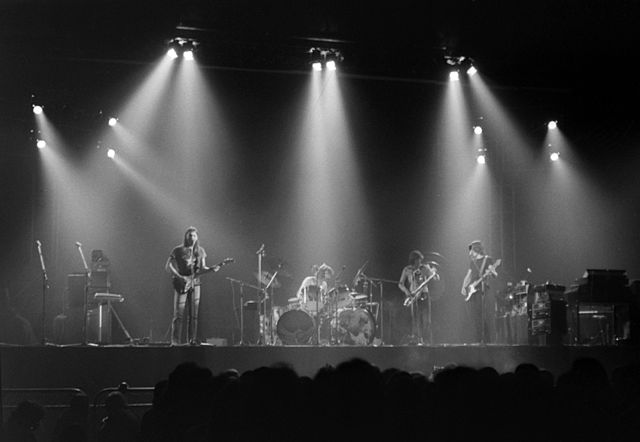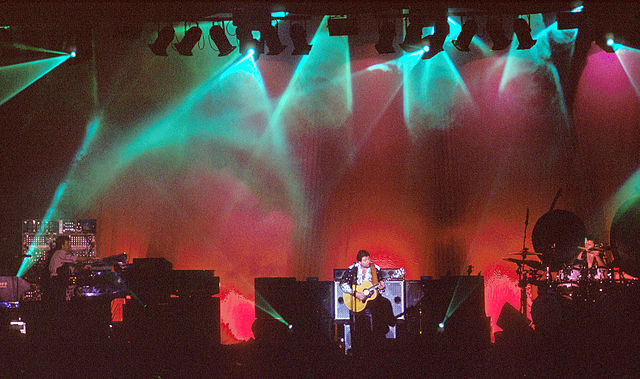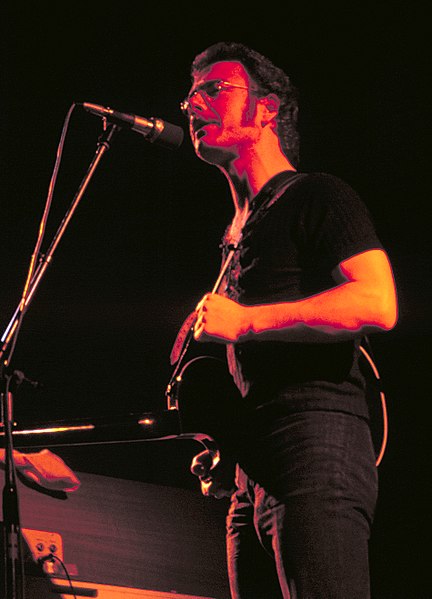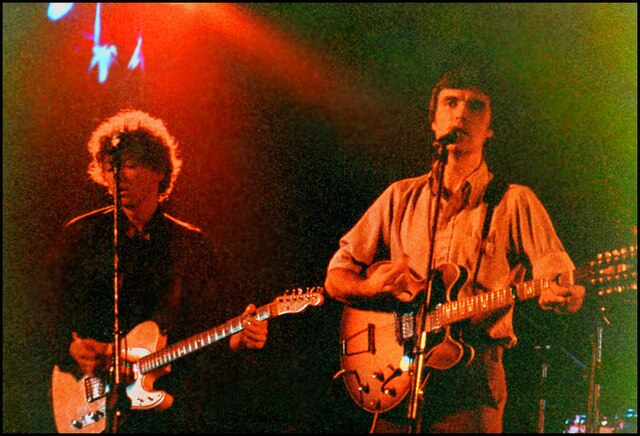Emerson, Lake & Palmer were an English progressive rock supergroup formed in London in 1970. The band consisted of Keith Emerson (keyboards) of the Nice, Greg Lake of King Crimson, and Carl Palmer of Atomic Rooster. With nine RIAA-certified gold record albums in the US, and an estimated 48 million records sold worldwide, they are one of the most popular and commercially successful progressive rock groups of the 1970s, with a musical sound including adaptations of classical music with jazz and symphonic rock elements, dominated by Emerson's flamboyant use of the Hammond organ, Moog synthesizer, and piano.
The band in Toronto, Canada in 1978
The group's second gig was at the 1970 Isle of Wight Festival
Emerson performing in 1977
Palmer performing on the Works tour, in 1978
Progressive rock is a broad genre of rock music that primarily developed in the United Kingdom through the mid- to late 1960s, peaking in the early 1970s. Initially termed "progressive pop", the style was an emergence of psychedelic bands who abandoned standard pop traditions in favour of instrumentation and compositional techniques more frequently associated with jazz, folk, or classical music. Additional elements contributed to its "progressive" label: lyrics were more poetic, technology was harnessed for new sounds, music approached the condition of "art", and the studio, rather than the stage, became the focus of musical activity, which often involved creating music for listening rather than dancing.
Pink Floyd performing The Dark Side of the Moon (1973), the best-selling album of the entire progressive rock period.
Emerson, Lake & Palmer were one of the most commercially successful progressive rock bands of the 1970s. They are seen here performing in 1992.
King Crimson's Robert Fripp believed that the prog movement had gone "tragically off course".
Talking Heads' Jerry Harrison (left) and David Byrne, late 1970s








